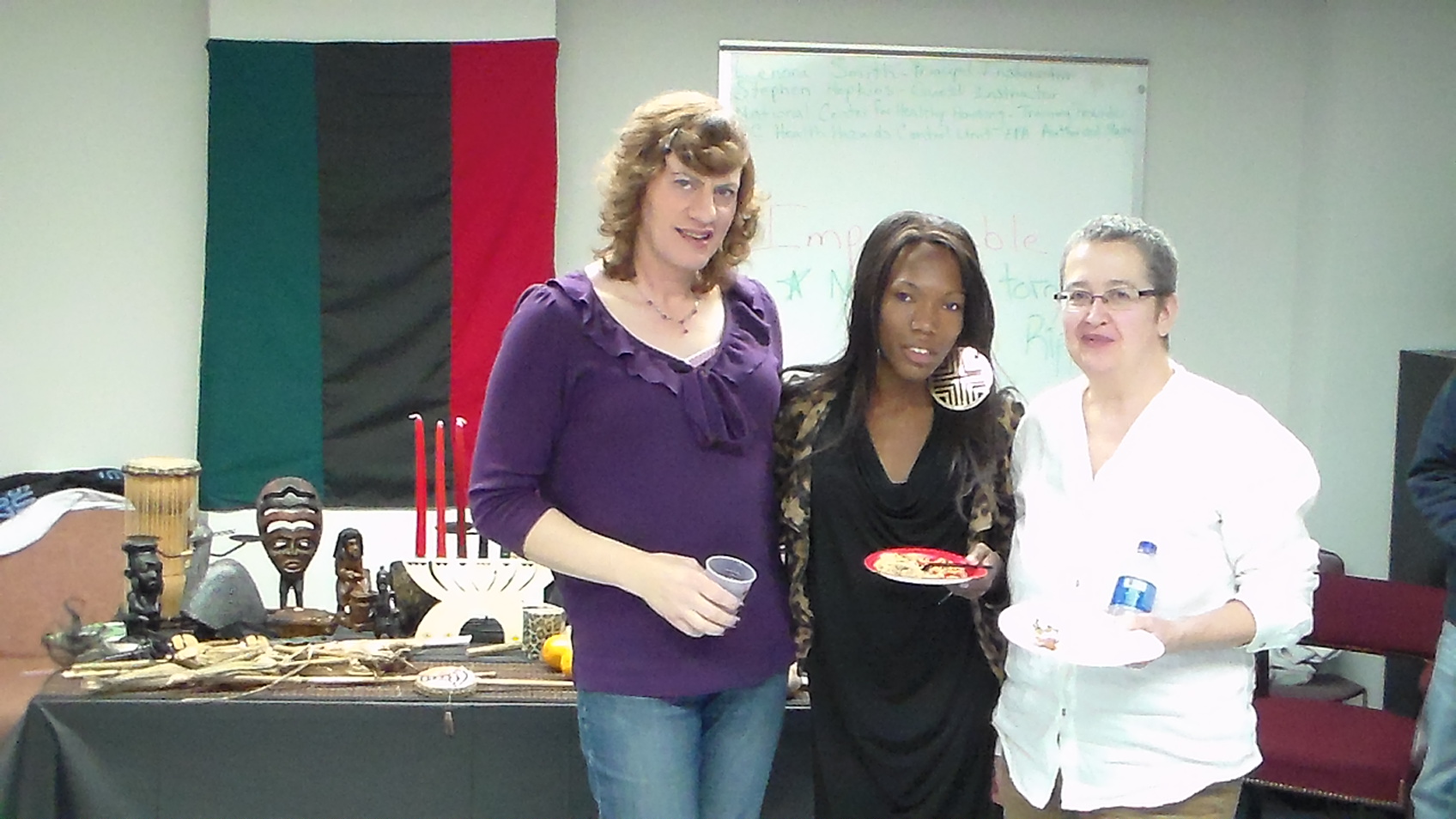Trans Justice in Action: 2013 Grantee Durham Gender Alliance
TJFP volunteer Rebecca Wisotsky chatted over the phone with our 2013 grantees to learn more about what their year has been like organizing their communities, providing public education and services, and working towards trans justice. Our grantees generously took the time to share their stories, including their success and challenges. Come meet some of our incredibly dedicated and inspiring grantees from across the country!
 The Durham Gender Alliance (DGA) is a moderated, gender-issues support group serving Durham, Cary, Chapel Hill, Raleigh, and nearby regions of North Carolina. DGA is guided by the principles of mutual respect, support, and education, and their goals are to develop community, foster leadership, and offer outreach. Membership in the DGA is available to all gender-diverse individuals (cross dresser, transgender, transsexual, intersex, and questioning), their significant others, family members, friends, and allies.
The Durham Gender Alliance (DGA) is a moderated, gender-issues support group serving Durham, Cary, Chapel Hill, Raleigh, and nearby regions of North Carolina. DGA is guided by the principles of mutual respect, support, and education, and their goals are to develop community, foster leadership, and offer outreach. Membership in the DGA is available to all gender-diverse individuals (cross dresser, transgender, transsexual, intersex, and questioning), their significant others, family members, friends, and allies.
Marcilla Smith is an active volunteer and member of DGA. She was in the car on her way back from a memorial for a trans community member and friend when I caught up with her. We didn’t get into the specifics of how her friend passed, but I think this is an important time to note that the National Coalition of Anti-Violence Programs documented 30 hate-related murders of LGBT people in 2011, and 40 percent of those victims were transgender women of color. Of course I offered another time to talk, but Marcilla saw this moment as an important one to move the work forward. So we got right into it!
Marcilla was excited to tell me about DGA’s new collaboration with other local groups. They had just participated in a sister group weekend, building bridges with the Triangle Empowerment Center and El Centro Hispano’s LGBT group. Each group’s focus is a bit different, ranging from HIV/AIDS communities, Black LGBT communities, and trans Hispanic communities in the South. The goal of the weekend was to work on intersectionality, build community and find ways to collaborate together in the future. They are planning another retreat and regular meetings for trans folks in all of these communities soon. As Marcilla explained, “For folks who are trans*, there is an opportunity in Durham to nurture an LGBTIQH culture which is not only ‘gay’ but truly Queer.”
DGA currently has one support group meeting each month. They also have a listserve which connects trans* people who are local, have moved away, live in rural areas without support, or are otherwise unable to attend meetings. The listserv has over 200 members and as many as 75% of them have never been able to attend a meeting to receive the in-person support that is critical to trans* lives. Both the listserv and the monthly meetings provide space for people to talk not just about gender and sexuality but also intersecting issues like racism and ableism that can marginalize and “other” members.
Marcilla expressed how important it is that these groups exist because one of the biggest challenges she sees among trans* community in her area is social isolation. Group members often express insecurity about intimate relationships and wondering if they will ever be loved, hesitations about applying for new jobs, and overall general social anxiety. It is critical to the health and well being of trans* communities that members are able to socialize and build community with each other. And it’s critical that we all support groups like Durham Gender Alliance. Invest in bringing trans* leadership to the center of grassroots social justice movements!
Rebecca Wisotsky, a queer, Puerto Rican Jew from New Mexico, with New Yorkers for parents, has been working towards social justice since she was first able to say “justicia.”
